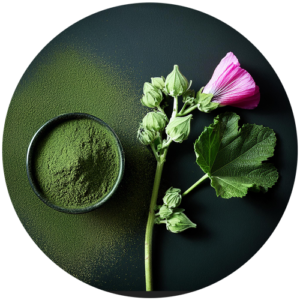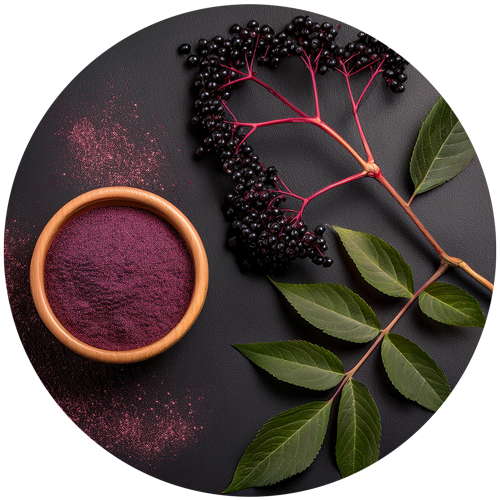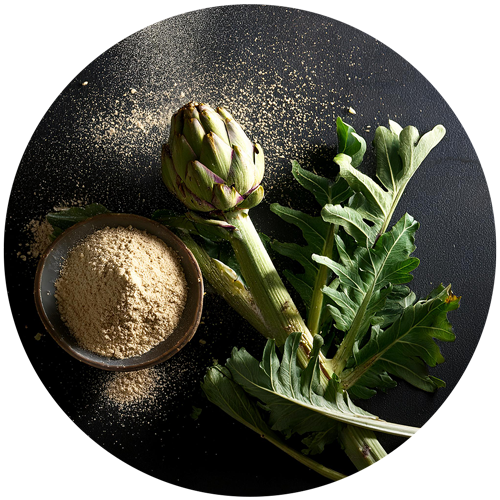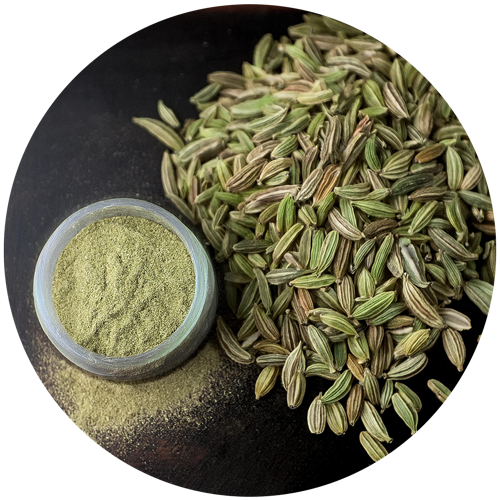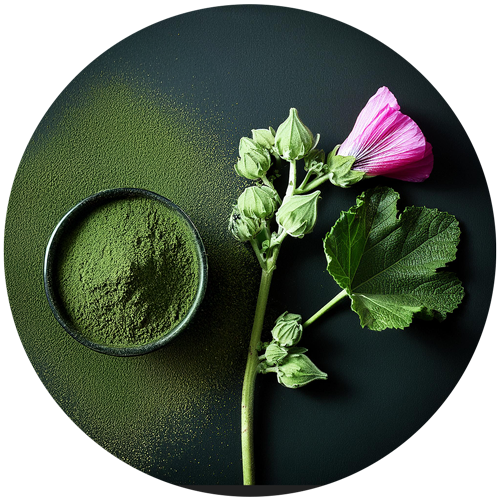

MALLOW
 Upper airways
Upper airways  Digestion
Digestion Mallow leaf comes from the Malva sylvestris plant, native to Europe, North Africa and Asia. It is known for its soothing properties and is used to soothe respiratory tracts and digestive disorders.
Regulations
and analysis
Identification : TLC
Data on traditional use
Cahier de l’agence du médicament (France):
-
Soothe abdominal spasms
-
Used for the respiratory tract
-
Stool transit and consistency
EMA monograph :
-
Used for irritation of the upper respiratory tract
-
Relief of mild gastrointestinal discomfort
German monograph :
- Used to soothe irritated mucous membranes of the mouth and throat
Association ideas by health axis
Select one or more axes:
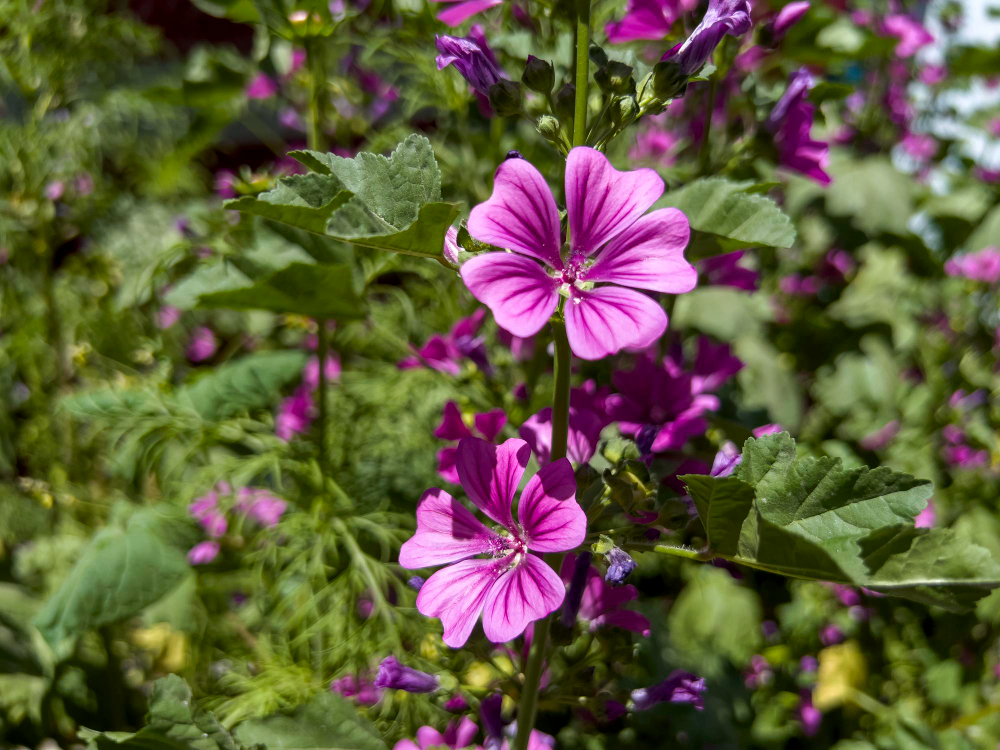
Detailed description
Mallow leaf, from the Malva sylvestris plant native to Europe, North Africa and Asia, is a plant characterized by mauve or violet flowers. It is distinguished by its large, serrated, palmate leaves. The plant is mainly found in meadows and roadsides.
Since ancient times, it has been used for its various health properties, notably as a poultice.
Mallow leaves contain mucilage, flavonoids and anthocyanins. These mucilages form a protective, emollient layer on mucous membranes. Today, mallow leaves are traditionally used topically to combat irritation of the respiratory tract and skin. Finally, they have interesting properties for intestinal transit, making them a perfect digestive aid.
Anecdotally, the Greeks and Romans considered it an excellent cough-reliever, notably through the famous Greek physician Hippocrates.
